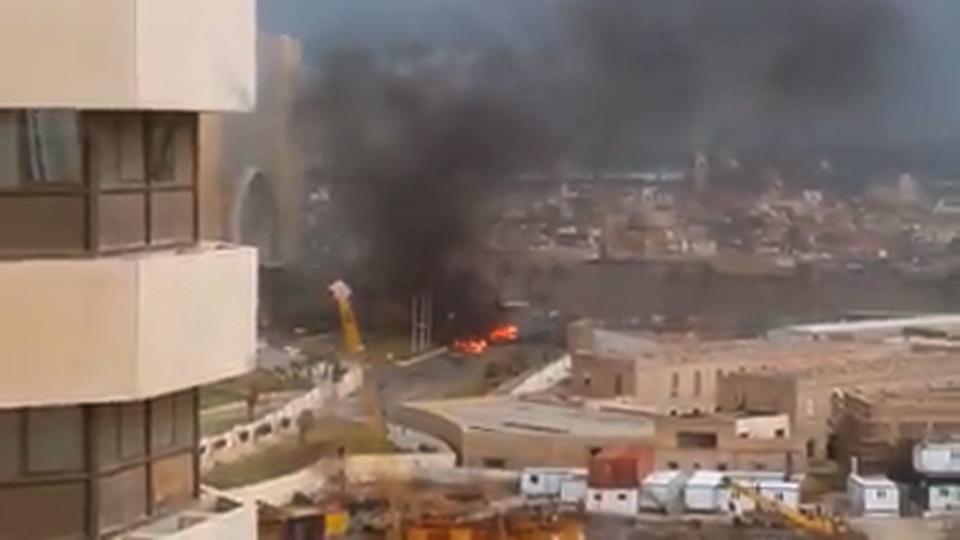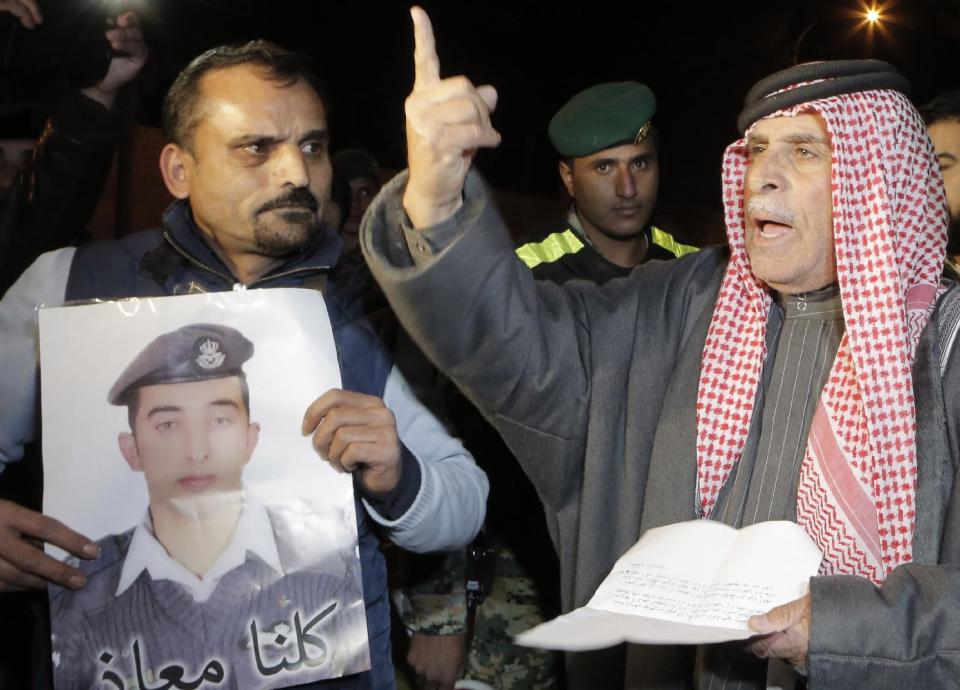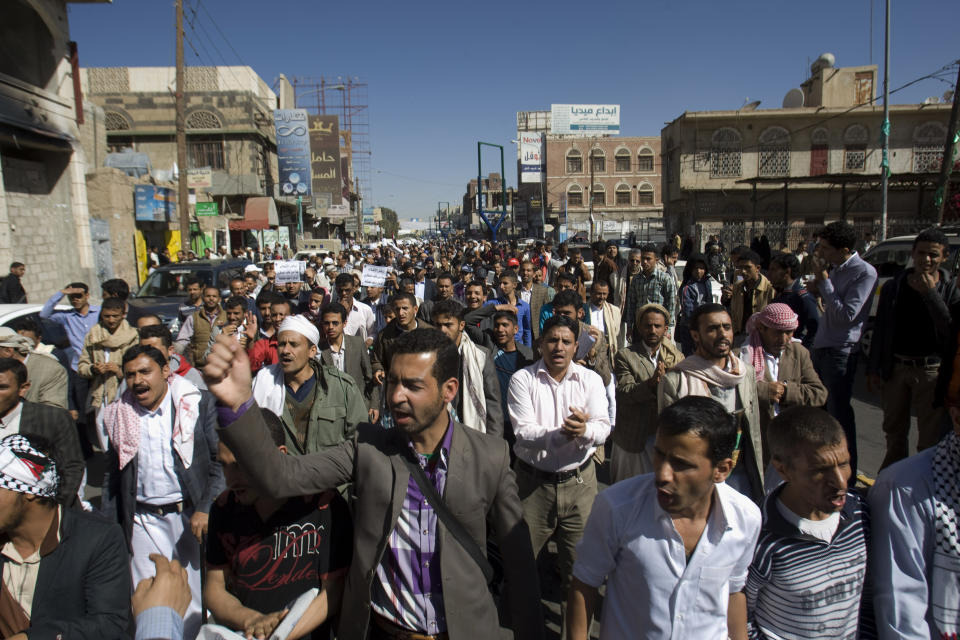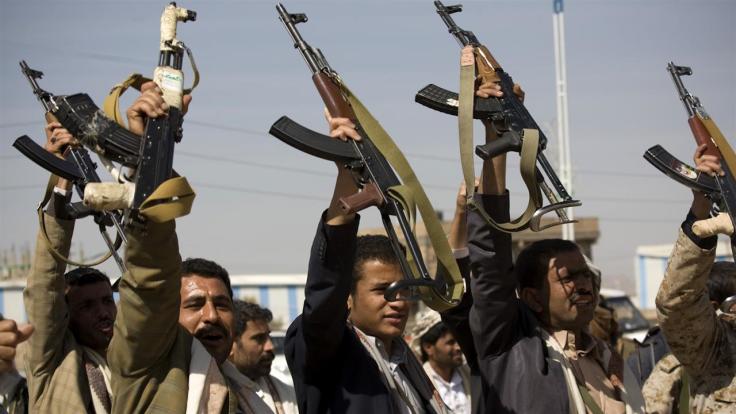The political violence of the
Koran is eternal and universal. The political violence of the Bible was
for that particular historical time and place. This is the vast
difference between Islam and other ideologies." — Bill Warner, Director,
Center for the Study of Political Islam.
The word has turned into a place where free speech is confused with
hate speech, and people in positions of responsibility, who take that
responsibility seriously, such as the Dutch parliamentarian Geert
Wilders, are bullied, marginalized and brought to trial.
So, to a degree are we all mentally ill, but not all mental illnesses
are socially acceptable and not every mentally ill person channels his
mental illness through a prism of religion that glorifies homicide.
Every time Islamic terrorism is discussed, those who bring up the
"Christian terrorism" of the Ku Klux Klan or anti-abortion violence
simply block free speech, as if deliberately trying to scramble the main
topic. They seem to be saying, "Whether the Islamic State is Islamic or
not is irrelevant; there are Christian terrorists as well, so do not
talk about Islamic terrorists."
When violence and domination in a religion are so deeply rooted --
and sanctioned with promises of rewards -- fundamentalists will always
find people to excite and people to persecute. It is a magnificent
ready-made outlet for people who wish to be violent and dominate, or
identify with a cause bigger than themselves.
That is why Islamic theology, ideology and goals desperately need to
be discussed. They deeply affect the life choices most Muslims make.
Shhhh! We can talk today of all religions but one. We can question
all religions but one today. We know that any question of Islam can be
taken as a criticism, and put our lives at risk, as seen most recently
in Paris with the murders of the staff of
Charlie Hebdo magazine.
It is the only religion that people -- including the apologists for
"Islamophobia" -- have to think ten times before discussing. At the same
time, it is the same religion that is perpetually associated with
"peace."
Why should anyone be afraid of a "religion of peace"? Because some of its supporters threaten to kill you, and often do.
Is there even one critic of Islam who has not received a threat, or
been able to live freely without worrying about his or her safety? We
are now living in a world where, if a prominent critic of Islam stays
alive, or out of a court of law, it is considered almost a miracle -- in
both the Muslim world and the West.
We are living in a world where, in Britain,
Muslim rape gangs and
sharia law courts
abound, but where defenders of liberty, such as Geert Wilders, Robert
Spencer, Susanne Winter, Lars Hedegaard or Elisabeth Sabaditsch-Wolff
are variously
banned, sued or threatened with jail -- if they are not first murdered, as was Theo van Gogh or the cartoonists of
Charlie Hebdo,
by the people or groups that they were trying to warn us about. Worse
yet, in a blame-the-victim inversion that could be out of Orwell, if you
do speak up and are harmed, it is all too often considered your
fault: if you had just kept quiet, so the thinking goes, nothing would
have happened to you. Just try telling that to the aid workers beheaded
in their orange jump suits, or, among many others, the victims of
Britain's 7/7, America's 9/11, Spain's train bombings, Toulouse, the
Jewish museum in Belgium, the Canadian Parliament, a massacre in Boston
or Fort Hood, in Australia or a Parisian supermarket.
The world has turned into a place where free speech is confused with
hate speech; and where people in positions of responsibility, who take
that responsibility seriously, such as Dutch Parliamentarian
Geert Wilders, are bullied, marginalized and brought to trial.

Geert
Wilders was brought in for interrogation by Dutch authorities, who want
to prosecute him for a remark made during a March 2014 speech, in which
he asked, "Do you want more or fewer Moroccans?" (Image source: nos.nl
video screenshot)
|
The apologists for Islamophobia have many tales to tell to hinder
free speech. Every time Islam is brought up, they bring up the issue of
violence committed against individuals who provide abortions. But
anti-abortion violence is not "Christian terrorism," and nowhere in the
New Testament does a single teaching command that people who either have
or provide abortions must be murdered or assaulted.
Verses of violence in any scripture that are open-ended commands to
kill should, instead, like the violent verses in the Old Testament, be
stories that relate to history, restricted by their historical context,
not interpreted as requirements for piety. Christians no longer engage
in the Inquisition.
Every time the Quran is discussed, apologists for Islam say "Oh, what
about the violent verses in the Old Testament?" But there are
qualitative and quantitative differences between the Hebrew Bible and
the Quran, even if they do not want to see that.
The Director of the Center for the Study of Political Islam, Bill Warner,
compares Islamic doctrine
to other religions quantitatively and qualitatively. Islamic books are
neither peaceful nor are their violent verses restricted by their
historical context.
"The real problem goes far beyond the quantitative
measurement of ten times as much violent material [as in the Hebrew
Bible]; there is also the qualitative measurement. The political
violence of the Koran is eternal and universal. The political violence
of the Bible was for that particular historical time and place. This is
the vast difference between Islam and other ideologies. The violence
remains a constant threat to all non-Islamic cultures, now and into the
future. Islam is not analogous to Christianity and Judaism in any
practical way. Beyond the one-god doctrine, Islam is unique unto
itself."[1]
He notes that, "There is no admonition towards political violence in
the New Testament." He might also have added that the violence in Islam
remains a threat also to many Islamic sects: Sunni, Shi'a, Sufi,
Ahmadiyya, Alawite.
After the Islamic State [IS] started beheading and raping innocent
people wholesale in Iraq and Syria, people were so shocked that they
attempted to find explanations for these vicious acts. Some of the
shocked have
accused the lyrics of a former rapper who later joined the IS
[2]; some accused the United States
[3], and some accused historical British colonialism
[4].
And another popular explanation is that Muslim terrorists in general,
and Islamic State terrorists in particular, are simply the victims of
mental illness [5].
So, to a degree are we all, but not all mental illnesses are socially
acceptable, and not every mentally ill person channels his mental
illness through the prism of a religion that glorifies homicide.
According to this explanation, even no matter what terrorists themselves say, anything
but
Islamic theology seems to be responsible for Islamic violence. Even if
people or organizations proclaims their Islamic beliefs for their
actions, shout Islamic slogans and carry the flag of Islam, their
violence always seems to have "nothing to with the Islamic ideology."
A photo that compares the Ku Klux Klan [KKK] to IS, for instance, has
been shared on the social media for weeks. The photo's caption,
referring to the Klan, read: "No one thinks that these people are
representative of Christians." Then, referring to IS terrorists, it
asked: "so why do so many think that these people are representative of
Muslims?"
A cartoon referring to IS read: "This is an Islamic organization... about as much as this [KKK] is a Christian organization."
Sadly, such photos and cartoons show how theologically illiterate
many people are. They have lost the ability to analyze or critique what
they are observing in the face of a deadly threat -- in this instance a
religion, Islamic ideology. These images, and messages like them, seem
intended to mislead one into concluding that fundamentalist Islamic
ideology contradicts the Islamic State's killings in Iraq and Syria, and
that Islam is not violent. "ISIL is not Islamic," U.S. President Barack
Obama
said. That conclusion is wrong.
To determine whether a group is a terrorist organization inspired by a
certain religion, what needs to be looked at is whether there is a
parallel between the stated goals of the group and the teachings of
their religion. The stated objective of IS is to establish an Islamic
caliphate under Sharia law
[6].
Every time Islamic terrorism is discussed, those who bring up the
"Christian terrorism" of the KKK or anti-abortion violence, simply block
free speech, as if deliberately trying to scramble the main topic. They
seem to be saying, "Whether the Islamic State is Islamic or not is
irrelevant; there are Christian 'terrorists' as well, so do not talk
about Islamic terrorists."
The Quran, however,
contains
dozens of verses promoting violence -- at least 109 verses call on
Muslims to wage war with nonbelievers for the sake of Islam. It would be
hard to interpret these verses as a spiritual struggle.
For instance, the Quran commands: "If the hypocrites, and those in
whose hearts is a disease, and the alarmists in the city do not cease,
We verily shall urge thee on against them, then they will be your
neighbors in it but a little while. Accursed, they will be seized
wherever found and slain with a (fierce) slaughter." (33:60-62)
Such teachings in Islam sanction slaughter against three groups:
- Muslims who refuse to "fight in the way of Allah" are hypocrites and they are to be massacred (3:167).
- People with "diseased hearts" -- including Jews and Christians (5:51-52; 33:61-62).
- "Alarmists," those who speak out against Islam, should also be slain. (33:62).
When violence and domination in a religion are so deeply rooted --
and sanctioned with promises of rewards -- fundamentalists will always
find people to excite and people to persecute. It is a magnificent
ready-made outlet for people who desire to be violent and dominate, or
identify with a cause bigger than themselves.
Worse yet, Muslims who do not join the fight are called "hypocrites"
(Quran: 3:167) and warned that if they do not join the violence, they
will be sent to a Hell of eternal fire. It is an order apparently
intended to neutralize one's conscience, encourage and sanction human
aggression, and promote murder -- seemingly why it has worked so well
for so long. As the leading Sunni cleric Sheikh Yusuf al-Qaradawi
admitted, "If they [Muslims] had gotten rid of the punishment for
apostasy, Islam would not exist today."
Part of the appeal of the Islamic State to many of its young recruits
seems to be this appetite for blood. It starts with videos of beheading
men in orange jumpsuits, and now reasons for murder have spread to
killing people for
wanting to leave the IS -- not Islam, just the IS -- and, in the instance of women and girls, for
refusing to marry jihadists.
On December 18, 2014, the Hindu Human Rights Group [HHR]
reported that,
"Text books in Pakistani schools foster prejudice and
intolerance of Hindus and other religious minorities, while most
teachers view non-Muslims as 'enemies of Islam,' according to a study by
a US government commission released on Wednesday."
...
"The findings indicate how deeply ingrained hard-line Islam is in
Pakistan and help explain why militancy is often supported, tolerated or
excused in the country.... The textbooks make very little reference to
the role played by Hindus, Sikhs and Christians in the cultural,
military and civic life of Pakistan, meaning 'a young minority student
will thus not find many examples of educated religious minorities in
their own textbooks.'"
As seen easily in the history of Islamic militancy in Pakistan, if
the extremist fundamentalists of this religion can find any Jews,
Christians, Hindus, atheists or other non-Muslims, who are referred to
in the Quran in less than favorable terms, the extremists target them
[7].
Sometimes the extremists kill them, and sometimes they only forcibly
convert them. If they cannot find non-Muslims, they attack the believers
of other sects of Islam -- as in the battles between Sunnis and Shias.
If people from those sects cannot be found to dehumanize and attack,
then the extremists target their own members. If supremacy, conquest,
violence and forced conversion are commanded and sanctioned in a
religion to such a great extent, the number of victims of that religion
will naturally continue to grow.
Fortunately, of course, most Muslims do not engage in fundamentalist
Islam, jihad or violence, but this still does not mean that those
teachings are not commanded by fundamentalist Islamic theology. Of
course, that ideology should never be confused with individuals. Muslims
should never be stereotyped, mistreated, or discriminated against just
because of their Muslim identity. Islam needs to be analyzed on the
basis of its teachings -- not on the basis of Muslims.
But that is why Islamic theology, ideology and goals desperately need
to be discussed. They deeply affect the life choices most Muslims make.
[1]
"It turns out," he writes, "that jihad occurs in large proportion in
all three texts (Koran, Sira, and Hadith, or the Islamic Trilogy). It is
very significant that the Sira (life of Muhammad) devotes 67% of its
text to jihad.... Now let's go to the Hebrew Bible. When we count all
the political violence, we find that 5.6% of the text is devoted to it.
... When we count the magnitude of words devoted to political violence,
we have 327,547 words in the Trilogy (Koran, Sira, and Hadith) and
34,039 words in the Hebrew Bible. The Trilogy has 9.6 times as much
wordage devoted to political violence as the Hebrew Bible."
[2]
Hisham Aidi, for instance, a lecturer at the School of International
and Public Affairs and the Institute of African Affairs at Columbia
University, argues whether extremist hip hop is helping the Islamic
State. Instead, he should be asking, "are some certain Islamic teachings
helping IS or why do the lyrics of extremist Muslim hip hop promote so
much violence?
[3] Various students who were
interviewed
on the quad by Campus Reform said that they believe America, not the
Muslim fanatics who behead innocent people, is the biggest threat to
world peace.
[4]
For example, David L. Phillips, Director of the Program on
Peace-building and Human Rights at Columbia University's Institute for
the Study of Human Rights,
wrote
that "ISIS has a legitimate grievance against Western countries that
carved up the Middle East, with blatant disregard for tribal and
sectarian affiliations of the local population.
[5] For instance: Psychiatrists Dr. Paul-André Lafleur, and Dr. Hubert Van Gijseghem
say
that the homegrown radicalization of the two men -- Martin Couture
Rouleau, who rammed his vehicle into two Canadian soldiers, killing one,
and Michael Zehaf Bibeau, who shot dead a soldier guarding the National
War Memorial in October -- stems from acute psychiatric problems of
paranoia, personal identity crisis and possible psychosis. Rouleau,
however,
had called
911 during the chase to say that he carried out his acts in the name of
Allah. Similarly, Zehaf-Bibeau had made a video prior to the attack in
which he
expressed
his motives as being related "to Canada's foreign policy and in respect
of his religious beliefs", according to the Royal Canadian Mounted
Police.
[6]
On 29 June 2014, the Islamic State proclaimed a new caliphate and
appointed al-Baghdadi as its caliph. Laith Kubba, the director for the
Middle East and North Africa at the National Endowment of Democracy,
explained:
"Baghdadi declared a caliphate, and anyone who knows theology and the
background would realize that this declaration, according to traditional
fiqh, puts an obligation of anyone who is religiously observant to
declare allegiance." When the caliphate was announced, IS
stated:
"The legality of all emirates, groups, states and organizations becomes
null by the expansion of the khilafah's [caliphate's] authority and
arrival of its troops to their areas."
[7] Other Muslims targeted in Pakistan include the Ahamdiyyas.




















